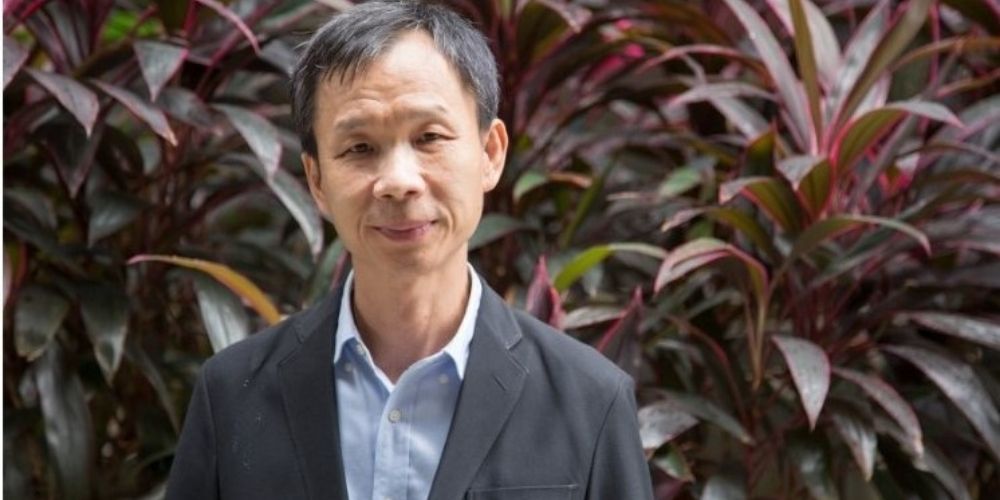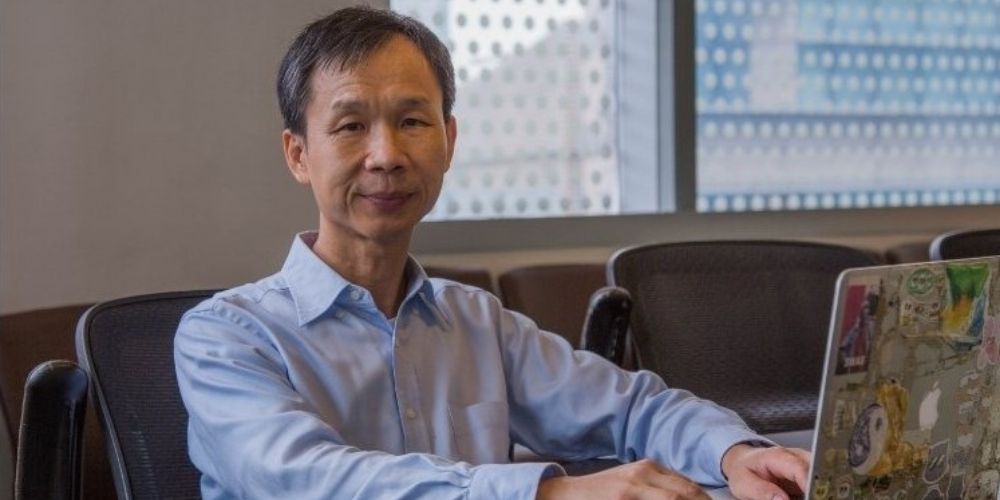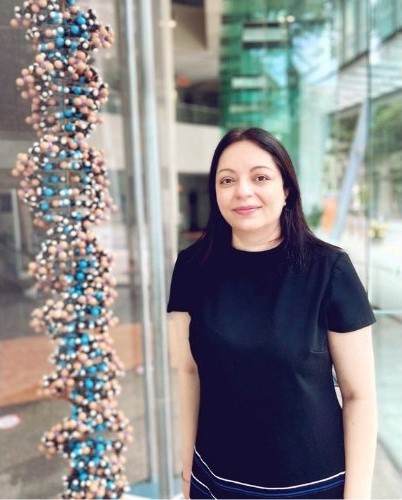A*STAR NEWS
Sharpening Precision Health Through AI & Big Data
At A*STAR’s Bioinformatics Institute (BII), powerful computational science algorithms and state-of-the-art technology come together to store, analyse and interpret biological and biomedical data collected in a clinical context or generated by life science experiments.
Mining these data leads to scientific discoveries and the identification of new clinical applications. Researchers integrate knowledge and expertise across multiple disciplines like biology, computer science, mathematics, statistics and physics to find practical clinical solutions in areas such as infectious diseases, cardiac diseases, cardiometabolic health adversities, cancer research, and discovering effective new drugs and interventions.
Standing at the intersection of this relatively new field of research are BII’s team of life scientists such as Associate Professors Lee Hwee Kuan and Neerja Karnani. Hailing from diverse scientific backgrounds, they are united by their common desire to discover the biomolecular mechanisms that underlie biomedical phenomena.
Both scientists share insights about their scientific ethos and work on AI and data applications in healthcare research.
Nurturing the next generation of AI researchers
LEE HWEE KUAN
Deputy Director for Talent and Training
Bioinformatics Institute, Cellular Imaging Division
 Assoc Prof Lee fervently contributes to bioinformatics and biomedical research through the use of artificial intelligence and machine learning.
Assoc Prof Lee fervently contributes to bioinformatics and biomedical research through the use of artificial intelligence and machine learning.
For Assoc Prof Lee Hwee Kuan, the scientific endeavour is an act of giving.
For him, this giving comes in three forms: The first is when the scientist shares with the world what he or she discovers in nature. The second “giving” involves translating these discoveries into tangible ways that benefit society. Finally, the act of giving also refers to the transfer of knowledge as the veteran scientist nurtures and guides the next generation of scientists in advancing technology through research.
This giving is best exemplified in Assoc Prof Lee’s daily work as the principal investigator of artificial intelligence (AI) applications in bioinformatics. Employed to major disease areas such as cardiology, cancers, skin diseases, child development and digital pathology, AI has unlocked an exciting new area in healthcare research to improve the lives of patients.
 Assoc Prof Lee began his career at A*STAR working on hard disk technologies, before moving to BII in 2006 to study machine learning for clinical research.
Assoc Prof Lee began his career at A*STAR working on hard disk technologies, before moving to BII in 2006 to study machine learning for clinical research.
After graduating from Carnegie Mellon University with a PhD in Theoretical Physics, Assoc Prof Lee first joined A*STAR’s Data Storage Institute to develop hard disk technologies. When BII needed researchers to develop the theoretical foundations of biochemical reactions using a stochastic algorithm, his training in stochastic simulations of molecules came in relevant. Later, when a new cellular imaging research division was set up, he made the switch from computational physics to machine learning, working on utilising AI to solve clinical problems.
Today, Assoc Prof Lee works in partnership with other research and healthcare institutions to develop various AI-mediated medical solutions. One such collaboration is with National Heart Centre Singapore (NHCS), National University Hospital (NUH), Tan Tock Seng Hospital (TTSH) and A*STAR’s Institute for Infocomm Research (I2R) to develop an AI platform that screens patients with coronary artery diseases more effectively and efficiently. Another is a series of digital pathology projects with National Cancer Centre Singapore (NCCS), Singapore General Hospital (SGH) and TTSH, developing AI tools that can read and diagnose high resolution digital pathology slides for prostate, lung, and other types of cancers.
AI algorithms can also improve the lives of patients suffering from diseases through the development of new drugs. To that end, Prof Lee is working on a project that uses such algorithms to speed up simulations on proteins and computations of small molecules, paving the way for quicker, less expensive and more effective drug development.
For Assoc Prof Lee, science has become his way of life, and he considers nurturing younger science talents as his most important achievement. Many of the bright young minds that he has mentored have gone on to become established scientists, principal investigators, and academic faculty in various parts of the world.
His advice for aspiring young scientists is simple yet heartfelt: “To be really good in what you do, the only way is to love what you do”.
Decoding our DNA for better healthcare
NEERJA KARNANI
Head of Clinical Data Engagement and Senior Principal Investigator
Bioinformatics Institute, Data Hub Division
 Assoc Prof Neerja Karnani specialises in omics and clinical data science. She joined A*STAR in 2013 and has since contributed widely to A*STAR's bioinformatics research.
Assoc Prof Neerja Karnani specialises in omics and clinical data science. She joined A*STAR in 2013 and has since contributed widely to A*STAR's bioinformatics research.
A fascination with the unique biology of each human being is what drew Assoc Prof Karnani to bioinformatics as a career.
She says, “All of us inherit the same set of genes, yet show different behaviours and vulnerability to health adversities. Decoding the variation in our molecular phenotypes and its unique response to environment is the key to unlocking precision healthcare in the future”.
A Life Sciences graduate of Jawaharlal Nehru University in India, Assoc Prof Karnani’s interest in the human genome led her to pursue a research career at the University of Virginia in the United States. She moved to Singapore in 2013 to join A*STAR's Singapore Institute for Clinical Sciences (SICS), working on the development of the multi-omics roadmap and database for Singapore's National Birth (GUSTO) and Pre-conception (S-PRESTO) cohorts. It involved deploying bioinformatics and clinical data applications to identify early risk factors and interventions to improve the physical and mental wellbeing of expecting mothers and their offspring.
The cohort study findings have led to the development of patents and licenses by the nutrition industry and are expected to translate into better maternal health and nutrition interventions. To advance her interest in population health studies and to connect it with real-world data, she took up the role of Head of Clinical Data Engagement with A*STAR’s Bioinformatics Institute (BII) in April 2021.
 Assoc Prof Karnani (right) and her daughter enjoying a game of table tennis at Biopolis.
Assoc Prof Karnani (right) and her daughter enjoying a game of table tennis at Biopolis.
Assoc Prof Karnani’s research on paediatric and adult health dovetails with her larger work on molecular phenotyping and clinical data informatics on Asian population. With Asians severely underrepresented in many biomedical databases, expanding knowledge of human variation and susceptibility to chronic diseases of Asians at different life stages is particularly crucial. Her team is studying Aging in Asians under the National Precision Medicine Program’s SG10K_Health project, where the genomes and epigenomes of 10,000 Singaporeans across different ethnic groups have been sequenced and are currently being analysed.
The potential of bioinformatics in translational research continues to excite Assoc Prof Karnani even up till today.
She says, “It is extremely motivating to see our work impact clinical research and translate to industry. The progress we have made on the learning curve and the everyday achievements along the way only fuels our desire to continue enhancing our capabilities.”
For this avid reader and intrepid explorer of the human biology, the next step involves more cross-sector collaborations with public agencies and local healthcare institutions. Whether it’s building a federated data lake for the local scientific community or developing the next-gen patient health journey mobile app for clinicians, the foundations of Assoc Prof Karnani’s scientific ethos remain uncomplicated—be curious, broaden your knowledge, and innovate.
Was This Article Helpful ?
A*STAR celebrates International Women's Day

From groundbreaking discoveries to cutting-edge research, our researchers are empowering the next generation of female science, technology, engineering and mathematics (STEM) leaders.
Get inspired by our #WomeninSTEM
